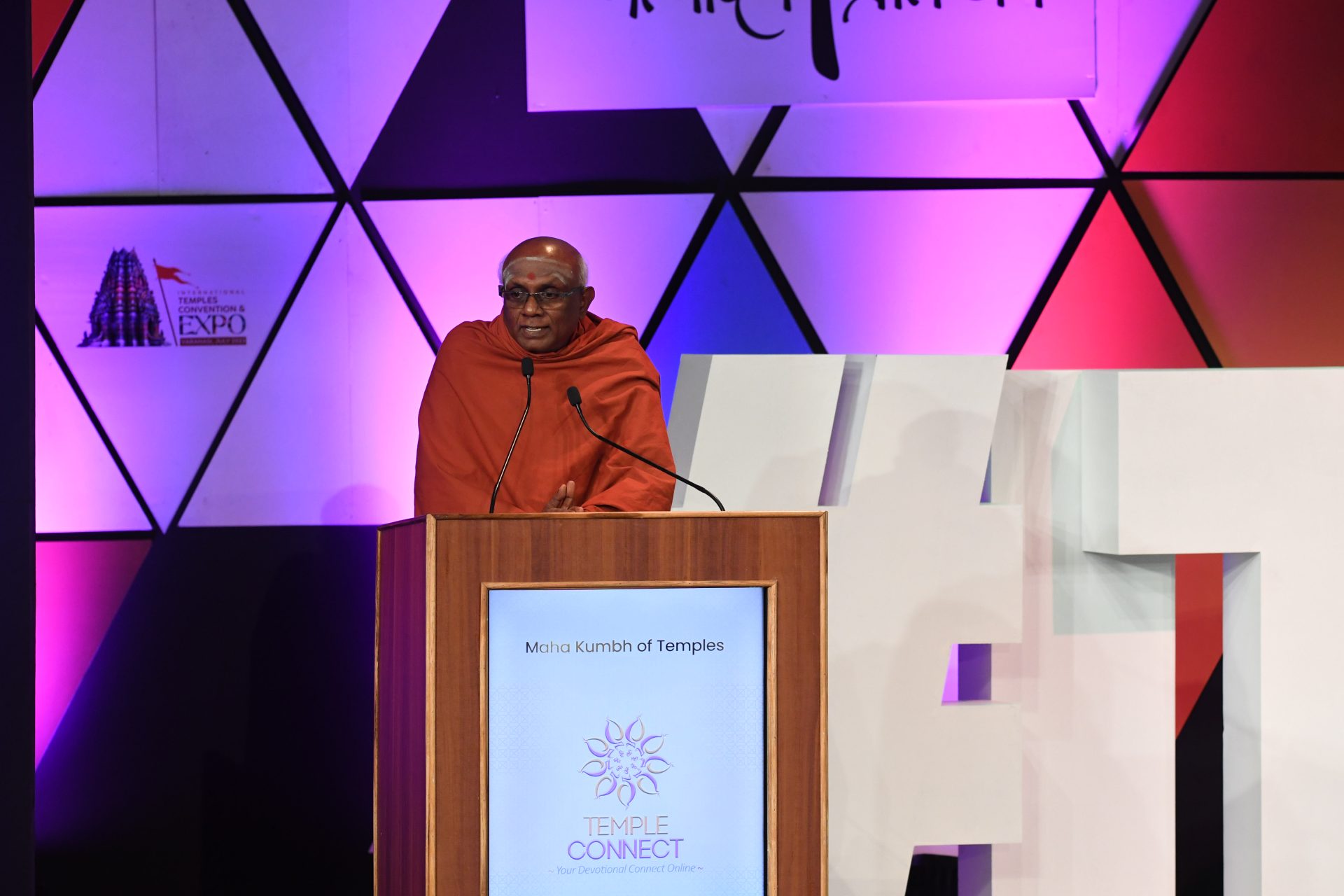Kovilur Madalayam: A Legacy Beyond Walls
Swamiji delved into the rich history of Kovilur Madalayam, the only Vedanta Mutt that teaches Vedanta in Tamil. Connected deeply with Shringeri Mutt, Kovilur Madalayam stands out for its commitment to spreading Adi Shankara’s philosophy through a structured syllabus of sixteen books. Remarkably, the Mutt opened its doors to all, even those from communities traditionally barred from formal education. The Mutt’s teachings not only empowered individuals but also played a pivotal role in their journey to becoming teachers themselves, thus creating a ripple effect of knowledge and wisdom.
A Tradition of Building Temples and Hearts
Swamiji narrated the extraordinary legacy of temple building and consecration that his community, the Nagarathar, has undertaken. This small, yet mighty community, inspired by the first pontiff of Kovilur Madalayam, has restored and consecrated around 120 of the 274 temples sung in praise by the Nayanmars. These temples, constructed with unparalleled craftsmanship, are irreplaceable today. Swamiji likened the community’s relentless dedication to the spirit of Karna from the Mahabharata, whose sole wish was to be as charitable in his next life as he was in his current one.
The HR & CE Conundrum
Swamiji did not shy away from addressing the elephant in the room—the mismanagement of Tamil Nadu’s temples under the HR & CE Department. Despite temples owning vast properties and resources, their current state is disheartening. He exposed the stark reality: out of the 43,000 temples, 38,000 are without daily pujas, and many have vanished altogether. The department, originally intended to address disputes, now seems more focused on revenue collection rather than temple upkeep, leaving devotees disillusioned and temples neglected.
Taking Matters into His Own Hands
Rather than waiting for the government to act, Swamiji proposed a proactive approach. He announced his intention to start a Trust to fund daily pujas in temples, starting with a pilot project in his home district of Sivaganga. This initiative will include not only financial support but also the recruitment and training of priests, ensuring they receive a respectable income, comparable to what a fresh graduate might earn in the corporate world.
Reinventing Tradition with Modern Solutions
Swamiji also highlighted the importance of integrating tradition with modern solutions. Recognizing the challenges in training priests and other temple personnel, he proposed the launch of online courses for Vedanta studies and Agama rituals, making it easier for more people to participate in temple management. Additionally, he spoke about the need to revive temple music and dance, ensuring these cultural treasures are preserved for future generations.
The Miracle of Seven Temples
In a poignant conclusion, Swamiji shared the lesser-known story of the Saptavidangathalams, seven temples in Tamil Nadu, each housing a miraculous Thyagaraja idol that traveled all the way from Indra Lokam. Despite their miraculous origins, these temples are now largely forgotten, with few devotees aware of their significance. Swamiji emphasized the need for better promotion of such temples, proposing a focus on temple tourism that highlights the miracles and spiritual significance of these sacred spaces.
Swamiji’s speech was not just a reflection on the past but a clarion call for action. He urged everyone to get involved in temple management, to ensure these spiritual centers are not just preserved but revitalized. By combining tradition with modern management practices, Swamiji believes that we can restore these temples to their former glory, ensuring they continue to be centers of devotion and community for generations to come.


